Just like many other place in the world where there are birds, there are birders who appreciate what birds do. I have come to appreciate the magic moments that birds live by taking pictures and video of the little gems that shine with radiating life.
On a recent trip to the east slope of the Tropical Andes I found two species that gave me the opportunity to soak some of their beauty and marvel at their parenting skills that helped them survive for all these centuries.
First meet the Torrent Duck family. These amazing swimmers have a name that makes honor to their ability to swim on rivers where the torrential waters become their home. We followed this family downstream while their little (one) chick learned to catch water larvae (aquatic invertebrates) probing and peaking underwater to discover his new aquatic world. During this event the baby explored the upper and under world while the parents followed him and only guided him when required. The active young duckling never stopped to rest and kept his parents very busy.
Mom and Dad
Torrent Family
Torrent Baby
Now meet the Turquoise Jay family where mother and father contribute to the feeding of the fledgling. The baby was like a motion detection alarm that started calling as soon as his parents would approach him within a few meters of his perch. This was much larger fledgling as compared with the Torrent Duck chick but he was not interested in searching for food and remained mostly inactive until the parents came close in range.
Working parent:
Feeding chores:
The well fed fledgling:
The work and dedication of the parents is obvious. Their team work was a lesson on survival, cooperation, caring instinct, and a reminder of why I love birding and why I support conservation.


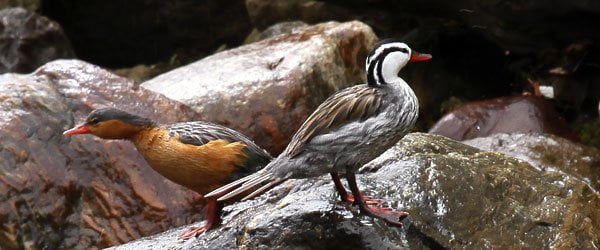
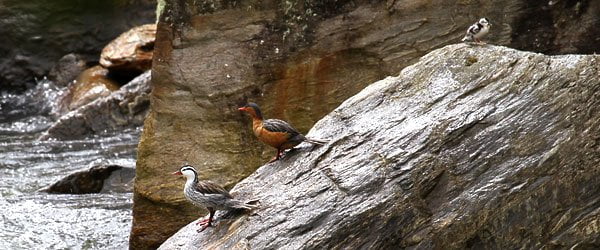
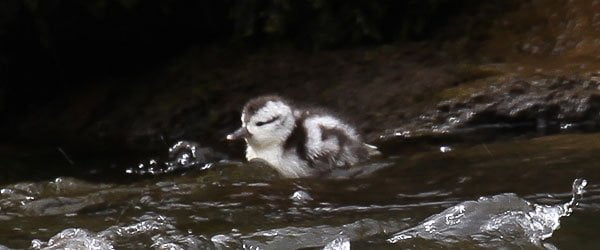
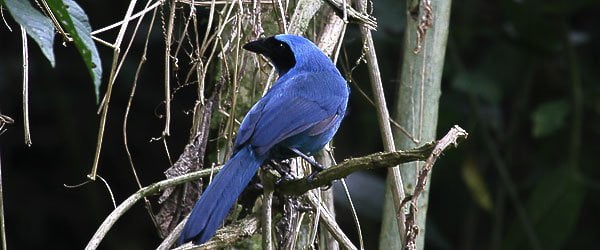
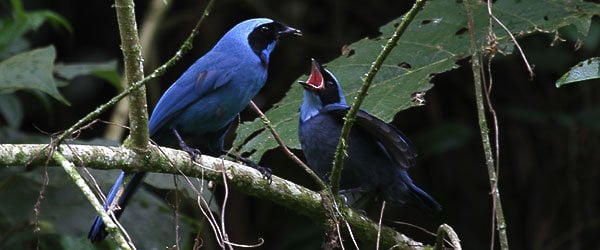
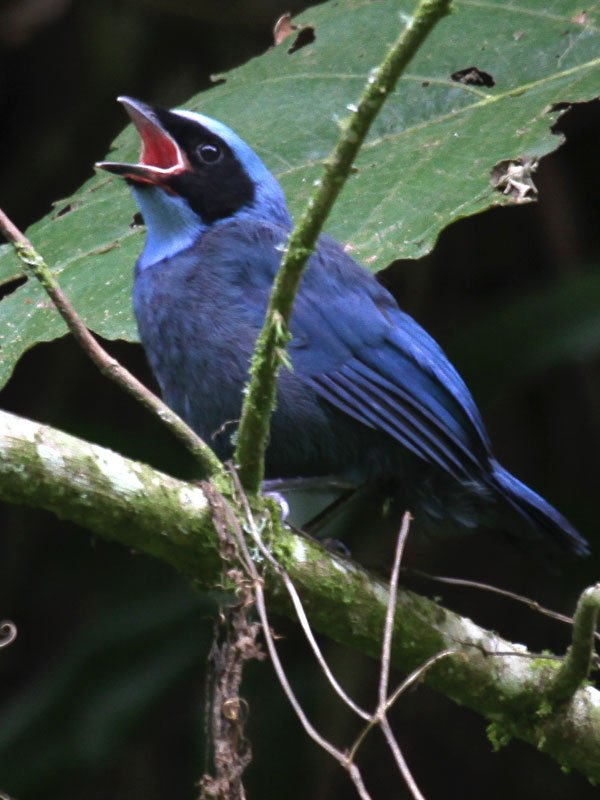






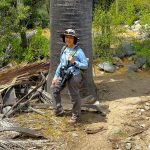


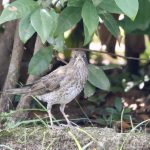

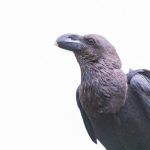

A Torrent Duckling! Oh, how I wish we had seen such a creature! Great post and great birds…
Nice shots. They look somehow familiar
I wish that I was strong enough to adhere to the Torrent Duck method of parenting. My little chick tends to get more of the Tourquoise Jay upbringing. Mind you it is a bit chilly in the UK at the moment, so I shall reserve chucking him in the nearest stream until spring.
Very nice post and pictures
@Redgannet: I can relate to that.
Dear friends: I just returned from birding in the Amazon for eight days and wanted to thank you for your nice comments. I had more of those magic moments to share in future posts.
@Corey: Not as cute as your little duckling at home.
@Tom: It seemed that every encounter we had has its own magic.
@Reddgannet: That is funny; I think you must certanily wait for summer to give your duckling the torrent river treatment, maybe event until after college.
@Wes: Thanks, we share that same appreciation for birds.